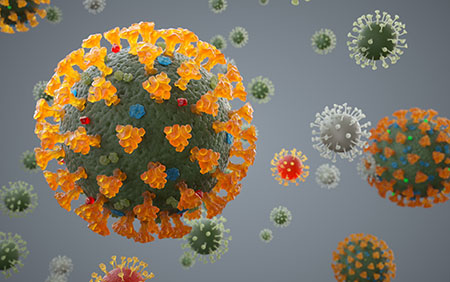Academic and industry experts collaborate to open up new supply chain to alleviate shortage of medical supplies caused by COVID-19
Jacqueline Mitchell 617-667-7306; jsmitche@bidmc.harvard.edu
MAY 06, 2020
Boston, MA – Confronted with the dramatic increase in demand for medical supplies brought on by the COVID-19 pandemic, a diverse team of experts came together to respond to the crisis. In a missive published online by the New England Journal of Medicine, Mark L. Zeidel, Chair of the Department of Medicine at Beth Israel Deaconess Medical Center, and colleagues describe how the Massachusetts Manufacturers Emergency Response Taskforce (M-ERT) mobilized to produce the testing supplies, medical devices and personal protective equipment that health care workers need to fight the epidemic in Massachusetts and beyond.
“By linking and facilitating communication between manufacturers, engineers, regulators, health care providers and other buyers, the Massachusetts Manufacturers Emergency Response Taskforce has established a trusted supply chain and assured that people who care for patients with COVID-19 in the Commonwealth don’t lack supplies for testing, patient care and protection,” said corresponding author Zeidel, the only physician to serve on the Taskforce. Zeidel and Tod Wolf, PhD, Executive Director of BIDMC’s Technology Ventures Office were the only group members representing Massachusetts’ hospitals.
Formed by the Massachusetts Technology Collaborative (MassTech)—a state economic-development agency with a mission of strengthening the Commonwealth’s technology and innovation economy—the Manufacturers Emergency Response Taskforce has, to date, helped develop U.S.-produced supplies of NP testing swabs, face shields, isolation gowns, face masks and sanitizers. It also has accelerated the production of new ventilators, is helping to establish a domestic source for ventilator filters and created a plan for rapid servicing of ventilators.
With co-authors Carolyn Kirk of the MassTech Collaborative and Ben Linville-Engler of the Massachusetts Institute of Technology, Zeidel highlights how M-ERT addressed the scientific, regulatory and economic uncertainties associated with developing and establishing markets for new products in the midst of a public health emergency.
For example, in partnership with organizations including the University of Massachusetts Lowell, the Massachusetts Institute of Technology’s Lincoln Laboratory, and Advanced Functional Fabrics of America, the Manufacturers Emergency Response Taskforce helped establish complex testing procedures for fabrics, gowns, face shields, masks and swabs now in production by partners industry.
In addition, as part of a BIDMC-led effort to source nasopharyngeal swabs for COVID-19 testing, M-ERT team members collaborated extensively to explore three-dimensional (3D) printing and other manufacturing processes, test materials and conduct clinical validation. The approach led to rapid FDA registration of new products that comply with existing or emergency regulatory requirements, including at least four kinds of swabs that can be mass produced by means of 3D printing at a potential rate of millions of swabs per day.
“Volunteer leaders became experts in each product area and were in constant contact with would-be manufacturers to help manufacturers understand current guidelines and to mitigate roadblocks,” said Zeidel. “The M-ERT partnership model may be possible in other states to assure that health care providers, first responders and other residents all have the essential supplies they need.”
About Beth Israel Deaconess Medical Center
Beth Israel Deaconess Medical Center is a leading academic medical center, where extraordinary care is supported by high-quality education and research. BIDMC is a teaching affiliate of Harvard Medical School, and consistently ranks as a national leader among independent hospitals in National Institutes of Health funding. BIDMC is the official hospital of the Boston Red Sox.
Beth Israel Deaconess Medical Center is a part of Beth Israel Lahey Health, a health care system that brings together academic medical centers and teaching hospitals, community and specialty hospitals, more than 4,700 physicians and 39,000 employees in a shared mission to expand access to great care and advance the science and practice of medicine through groundbreaking research and education.

